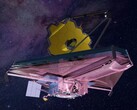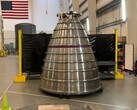A new MIT-led study — published in the Proceedings of the National Academy of Sciences — proposes the possibility of life-sustaining planets based on an entirely different class of fluids. This discovery, if adopted, could broaden the search for life by including warm, rocky planets with thin atmospheres to the list of potentials. This would mean some planets that were quickly discarded and disregarded in the search for life will jump right back into the spotlight.
The research centered on ionic liquids — salts that remain liquid under relatively low temperatures and also have extremely low vapor pressure — which are non-volatile even in near-vacuum conditions. These characteristics mean they can persist on planets that are too warm for liquid water, or have atmospheres too thin.
The research team came about this discovery by accident. The team was conducting a study of Venus' atmosphere when they stumbled upon a chemical reaction that resulted in a non-evaporating liquid. They realized they had formed an ionic liquid from two common planetary ingredients: sulfuric acid and nitrogen-containing compounds. The former is often produced by volcanoes, while the latter are commonly found on asteroids and other celestial bodies.
The researchers then conducted follow-up experiments and found that these ionic liquids could easily form on basalt rocks (a type of rock found in rocky planets) under a wide range of temperatures and pressures common on rocky planets. The researchers report that these fluids support biocatalysis, which makes them a “plausible solvent for life.”
We consider water to be required for life because that is what’s needed for Earth life. But if we look at a more general definition, we see that what we need is a liquid in which metabolism for life can take place. — Rachana Agrawal, leader of the study.
The team suggests that small droplets or pools of these liquids could persist for millennia on a planet's surface, serving as “small oases for simple forms of ionic-liquid-based life” and dramatically increasing the number of planets we might consider potentially habitable.
Source(s)
Image source: Harrison Steen























